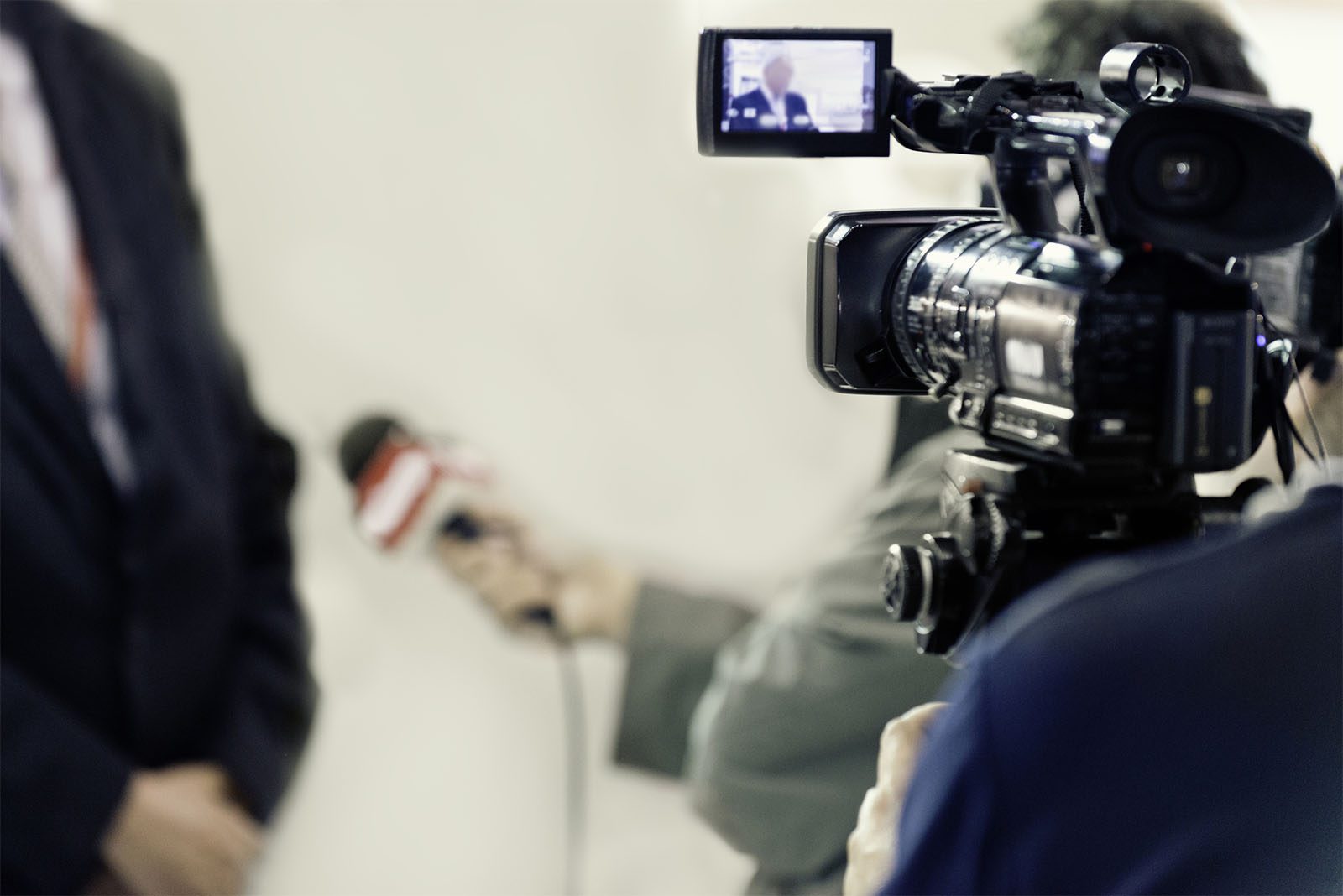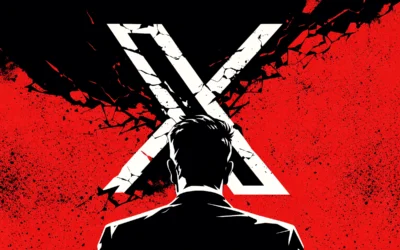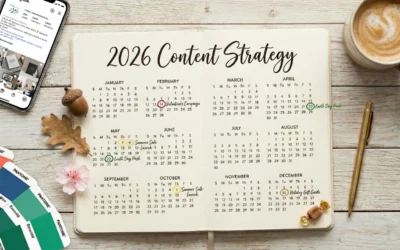For Public Relations professionals and PR clients, conducting a TV interview is high risk, high reward stuff.
Being interviewed for TV is a true test of your communications skills under pressure so it’s important you are as ready as you can be. Here are our top 6 tips for preparing and getting it right in front of the cameras.
Relevant Insights
1. Make eye contact, even for the TV
Probably the most important aspect. If you’re being interviewed face-to-face, make sure you keep your focus on the interviewer (not the camera).
If you’re being interviewed remotely, e.g. for a TV news segment, the camera becomes the interviewer and that’s where you look. Eye contact is one of the most significant aspects of non-verbal communication, in everyday life just as in front of the TV cameras.
While you are looking to maintain good eye contact here – establishing trust and rapport – it’s important not to over-do it. Staring can come across as not just over-familiar (like over-using someone’s first name) but can sometimes even seem aggressive, depending on the subject at hand. Maintain eye contact in a friendly, natural way, the way you would when having a normal chat with someone you know. Glance away to consider a thought or reply, then back to make your point. Try not to blink too often, roll your eyes or otherwise undermine the rapport you’re trying to establish.
2. Get your posture straight
That means sit up straight – or stand up straight. Not only will you look better, you’ll breathe better too.
For example, if you’re sitting at a desk, the right posture will actually increase your air supply, making you more comfortable and in control of what you’re saying. Whatever you do, don’t slouch. Hunching or slouching is a bad look in any circumstance. A strong posture with shoulders back and upper body relaxed can actually make you look taller and more confident.

Other posture tips to consider. Figure out what to do with your hands. Have them clasped towards your body (but not tightly) if your elbows are resting on the chair. Or else lean slightly forward with forearms on desk, and clasp them on the surface. Don’t lean, don’t swivel, don’t swing your legs around. Keep your feet flat on the floor or cross your legs in the direction of the interviewer.
3. Never wing it – practice what you’re going to say
Goes without saying? We’re saying it anyway!
Use whatever time is available to practice what you plan on saying, even if you only have 10 minutes. Those 10 minutes could be the difference between nailing your message and ‘not quite’ getting it right.
Obviously, the more time you have to prepare the better, but even if the clock is ticking. Find somewhere quiet – an empty office, the restroom, even a quiet corner of the TV or radio studio – to get your story straight. The more comfortable you are with what you’re saying, the more convincing you’ll be.
It’s important too that you don’t stay completely ‘in your head’ during this crucial period of rehearsal. You need to know that your messages sound right. That your meaning is clear. That your choice of words won’t make you stumble or obscure what you’re really getting at. The only way to do that is to practice out loud. Better yet, in front of a colleague or friend – so you can fine-tune your verbal delivery for maximum effect.
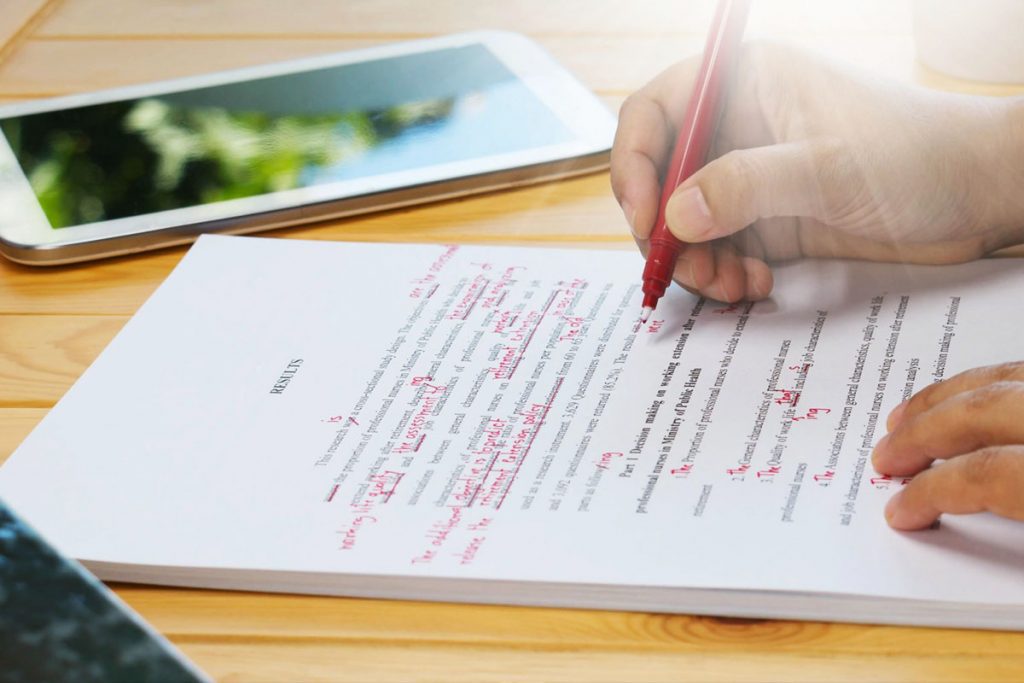
4. Make sure you hit your key messages
There’s a reason you’re about to face that red ‘recording’ light.
You have been invited to conduct a TV interview because you have a perspective that is of interest and value. Don’t be passive about the interview process – you are there to get your point across, so make sure you do just that. Throughout the TV interview, keep ‘bridging’ back to your key points. Even if the line of questioning is not exactly what you were expecting, find a way back to your key messages. If you’re asked for a final thought, make sure you finish on a key point.
Again, preparation is vital here. You cannot be expected to remember endless individual messages so boil it down. What are the two or three most important things you would want your audience to hear? If you could deliver only a single sentence to the camera, what would that be? These are your key messages.
Get them into your mind, then get them across on camera.
5. Make your messages memorable
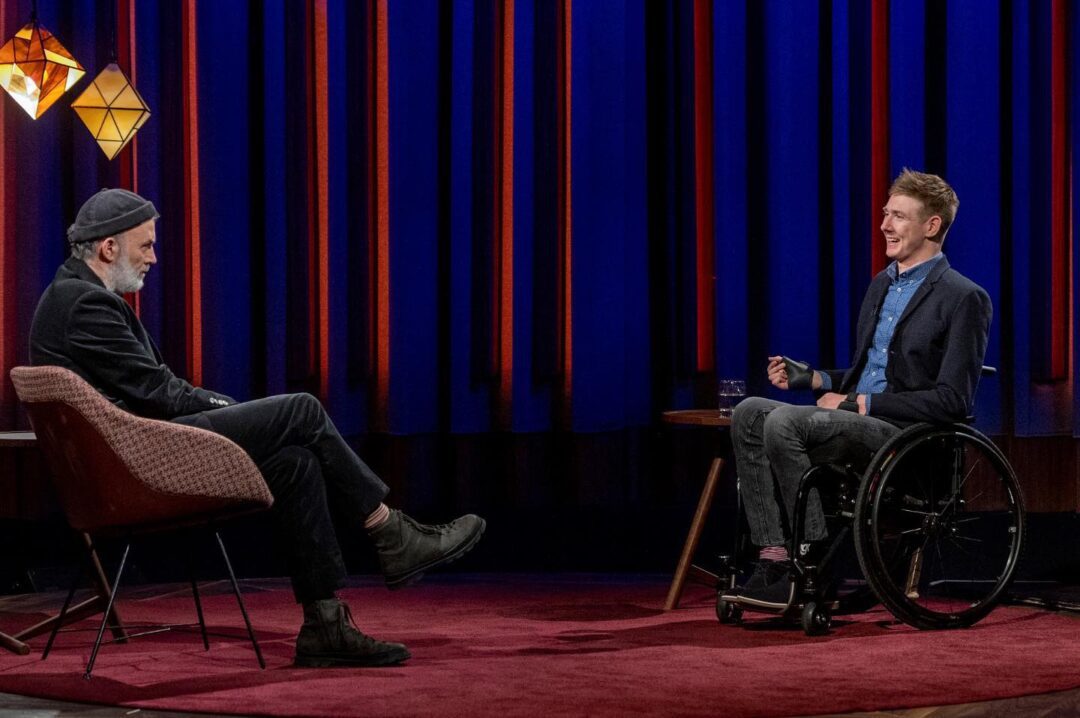
Did you ever wonder how the great orators always manage to make their words so memorable? A big part of it is the way they construct and deliver their biggest lines. These power-points (not PowerPoint: rarely memorable!) are carefully designed to please our inner ear. They are usually short, very direct, sometimes with a poetic or even melodic beat (use of alliteration, for example) and thus easy to remember.
All media likes quotes that are quotable. Try and phrase your key messages in a way that makes them memorable. Avoid clichés (“it is what it is”) and stock (“umm as I said”) or corporate phrases (“going forward”). Use colourful images and interesting examples. Try and tell a story that will catch the eye.
You are a human, communicating to other humans – so let your humanity shine through in your words.
6. Be calm and positive
This is huge.
As anyone in the PR business knows, there are two types of interaction with a TV camera:
- The easy interview, where the line of questioning is friendly and encouraging;
- And the difficult interview, where you are trying to defend or explain a position that is coming under fire.
Easy interviews can, admittedly, sometimes stray into difficult territory – but it’s quite rare.
Difficult or confrontational interviews, on the other hand, start tough and generally remain tough. It is the interviewer’s job to not let you off the hook. Expect that; be ready for it. But don’t take it personally – they are just doing their job. And no matter what happens, roll with it. Keep your cool under any circumstances, stay on-message (fall back on your key points) and remain calm and positive. Smile if the subject matter is appropriate – this will give you positive energy – and always speak sincerely.
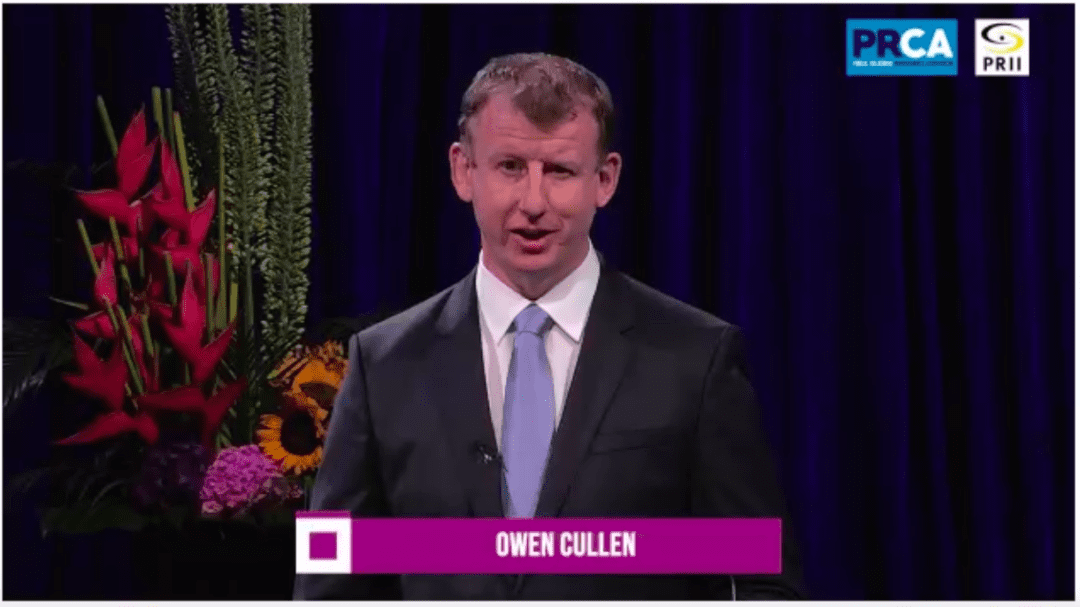
Remember the power of TV interviews
Facing a TV interview can be a daunting prospect but more often than not, it is an opportunity worth grabbing. Exposure on TV carries a high value and affords you a chance to get your message across to a large audience.
It must also be said that like most things in life, going on television gets easier the more often you do it. So, don’t be afraid – front up and face the cameras!
Cullen Communications provides TV and radio interview skills training to build capability, understanding, and expertise so you can face the media with confidence. Find out about our media training services here.

About the author
Pearse O’Loughlin, Client Director with Cullen Communications, has more than 20 years of experience across all areas of communication and works principally with clients in the corporate and consumer sectors. One of the most experienced automotive PR professionals in Ireland, Pearse specialises in media relations, event management, internal communications and strategic consultancy.

